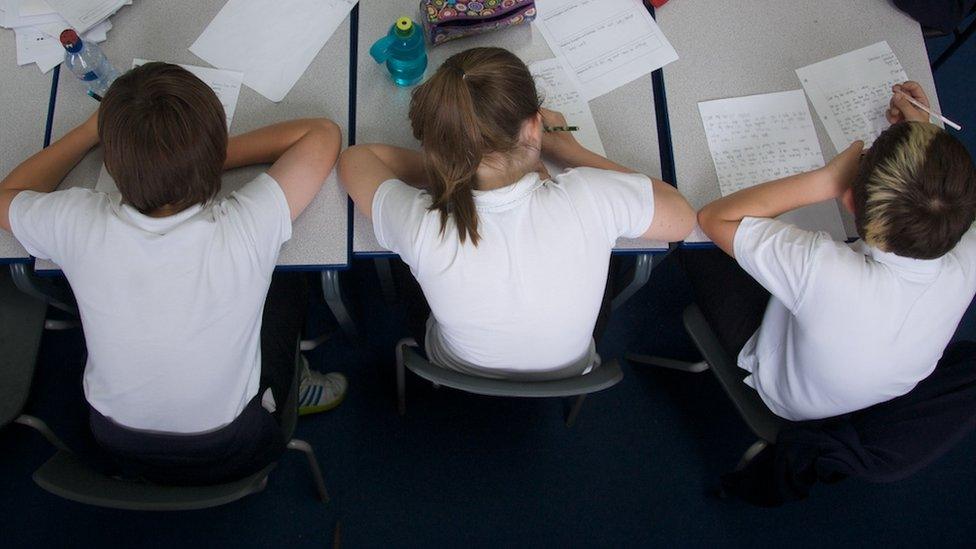Ballot on strike action by teachers approved by EIS
- Published
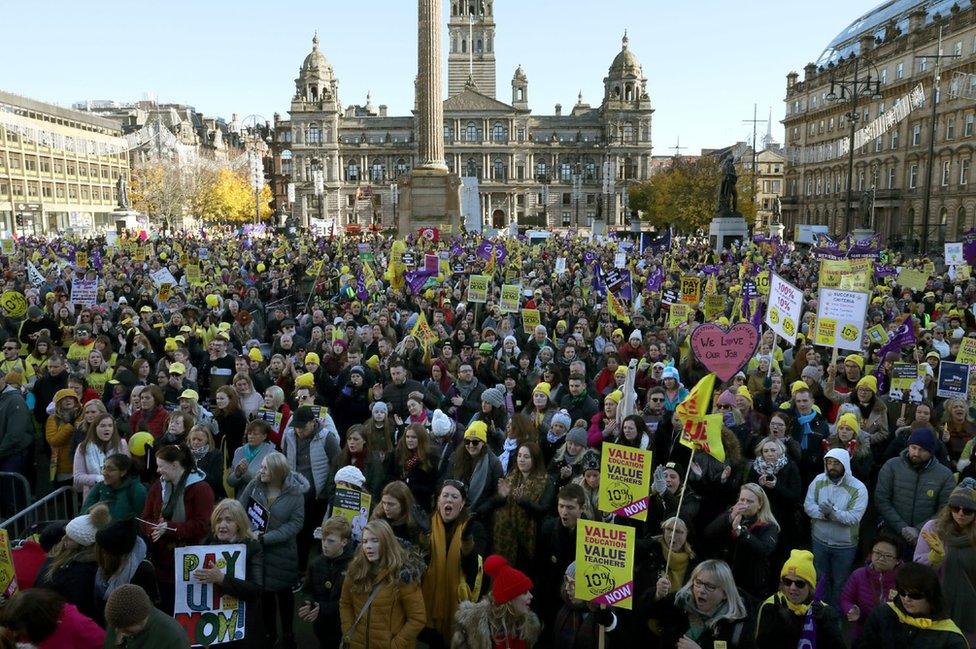
Thousands of teachers marched in Glasgow last October
Scotland's largest teaching union has approved plans to ballot its members on strike action.
The move was recommended as part of the Educational Institute of Scotland (EIS) campaign for a 10% pay rise.
But the Scottish government and local authorities say the deal they are currently offering teachers is the most generous for public sector workers in the UK.
Ballot papers will be issued later this month.
Meanwhile, formal notice of the planned ballot will be issued to local authority employers next week.
Earlier this week, teaching unions rejected the latest revised offer, dated 7 January, from Cosla and the Scottish government.
'More than just pay'
EIS general secretary Larry Flanagan said: "EIS Council has today approved the opening of a statutory strike ballot over pay.
"We have been negotiating for a year, on a pay claim that was due to be settled last April. Teachers' patience is now exhausted.
"Our preference has always been to agree a fair deal through negotiation, but we have been very clear, also, that we are prepared to take strike action should this be necessary to achieve an acceptable settlement."
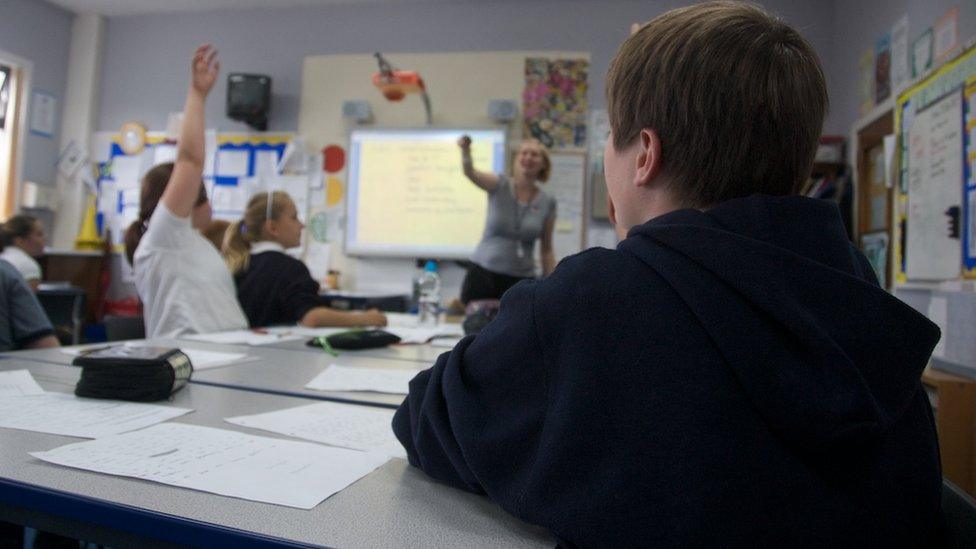
He added: "Ballot papers will be issued later this month. Clearly, once the actual ballot is under way negotiations are suspended but prior to that we remain prepared to consider any improved pay offer.
"No offer has been forthcoming from our local authority employers, however.
"Teachers have demonstrated time and time again their support for our Value Education Value Teachers campaign, which is about more than just pay. I'm confident that will continue to be the case."
Staggered pay rise
Last year the EIS and other teacher unions tabled demands for a 10% pay rise over one single year.
The Scottish government and councils argue its proposal, staggered over a three-year period, is the best it can afford.
The deal offers a 3% pay increase for those earning up to £80,000 in 2018-19, with those at or above that level receiving a flat rate increase of £1,600.
Then in both 2019-20 and 2020-21 teachers would get a further 3% rise.
The Scottish government said its additional contribution to restructure the pay scale would see all teachers on the main grade scale receiving at least a 5% increase in 2018-19, which would be backdated to April last year.
Some teachers would receive up to 11% in one year in conjunction with annual progression.
The government and councils urged unions to put the offer to their members.
'Enhanced offer'
Deputy First Minister John Swinney said: "In light of concerns raised about the position of the significant number of teachers already at the top of the main grade pay scale, the Scottish government is prepared to improve its offer around main grade restructuring and revaluation of all other SNCT pay scales.
"The Scottish government will provide the extra funding, which is in addition to the local government settlement.
"Under this scenario, teachers would receive a minimum 9% increase between January 2018 and April 2019 and a further 3% rise in April 2020.
"This is a clear indication of our commitment to recruit and retain teachers and I urge the teaching unions to consider this favourably so that parties can bring discussions to a conclusion."
He added: "I made this proposal to the EIS on Thursday. It is an enhanced offer and I will ask Cosla to agree this and to formally offer it to unions after 25 January. I believe this must be put to teachers for their consideration.
"I welcome the agreement by EIS to allow further time to reach an agreement. Industrial action is in no one's interests not least our children and young people. That has been my focus and will continue to be until this resolved.
The last widespread industrial action by Scottish teachers over their pay and conditions was in the mid-1980s.
A lengthy work to rule had a serious impact on school sport, extra curricular activities and the introduction of Standard Grades.
While most schools were affected by strikes during this dispute, secondary schools in Conservative constituencies were targeted. EIS members at those schools regularly went on strike three days a week.
- Published21 November 2018
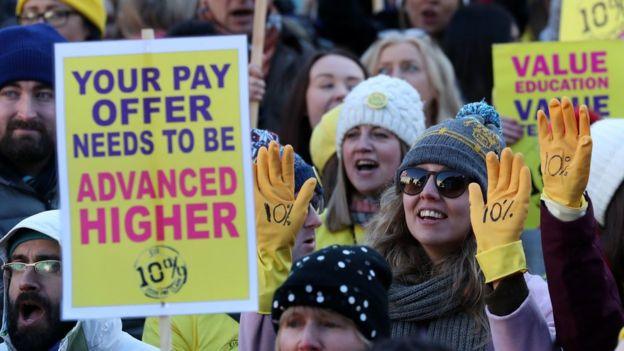
- Published27 October 2018
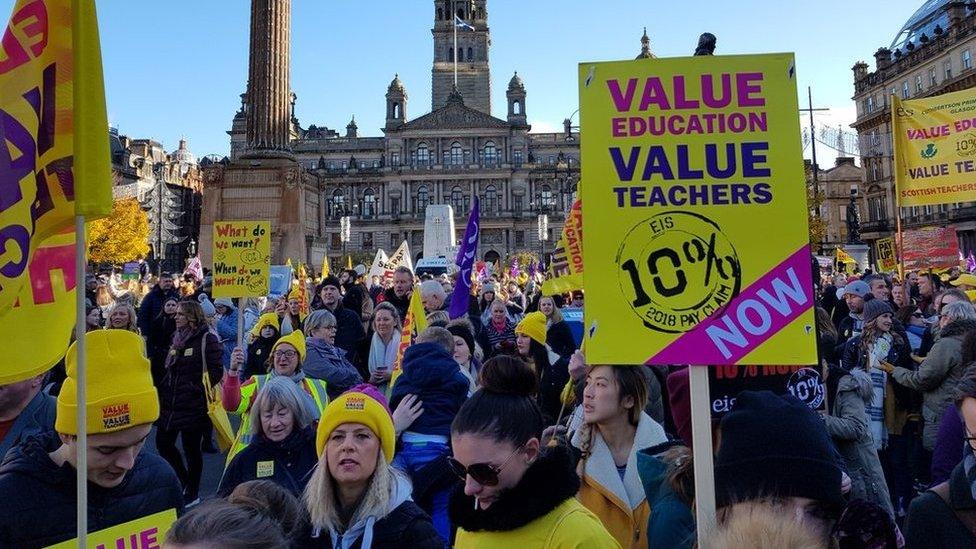
- Published20 November 2018
